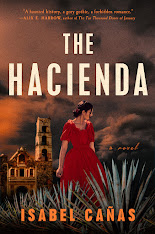I have attended workshops. I’ve read articles. I’ve done research. How do you condense 100,000 words into one paragraph, a mere handful of sentences? I’ve done it once before. As I get ready to do it again, I find myself trying to remember how I did it the first time. That means diving into my notes.
A couple years ago I went to a workshop and it provided me with guidance that I’m going back to now. That workshop combined with others, combined with my own book blurb reading, combined with internet research, has given me a good idea of how to start writing my latest blurb.
1. The most important thing is a hook. The first sentence should grab a reader, just like the first line of the novel. The first sentence may or may not have the main characters name in it or who the main character is, but I think it should reflect current emotional state of the character. In my novel, the main character starts out appearing pretty calm, and I think I’m going to say that, but that’s not all. I’m going to mention if she’s lonely or isolated or something similar.
2. Bam! I’m going to hit her with the inciting incident.
3. After the inciting incident, where is she now? She certainly not in the same emotional place she was in the beginning.
4. But we need stakes! What are they? Is it life or death? What will she gain or lose? What are the obstacles in her way?
5. Don’t give away the ending! The blurb should be enticing. Throw a cliffhanger on the end. The blurb needs to make people want to read the book.
6. The blurb should be written in the tone of the novel. Is it a cheeky novel? Then it should be a cheeky blurb. Is it a scary novel? Then it should be a scary blurb. Getting the tone right will likely happen in the editing.
7. I was once told that the blurb should be 250-300 words. NO! Don’t do that. A query letter is often 300(ish) words. The blurb should hover around 150 words. I’ve heard that in workshops, seminars, podcasts, videos, etc.
8. Edit, edit and edit some more. The first seven points might get seven sentences to make the blurb, but are they good sentences? The links I’ve included below have steps to writing the one paragraph synopsis. I’ll follow the points I’ve talked about to get the first draft done, but that’s what it is — A first draft. I’m sure the first sentence will change ten times. Maybe more. It will all change. Then change again. Writers write, but they also edit. A lot.
I hope this helps people writing their synopsis. If it doesn’t, see the links below. Something should help, right? While I was writing this, I also wrote the first iteration of the blurb for my WIP. Is it going to stay the same? Nope. Reading it again, I know it needs to change. At least I have something to work with now.
Recent stuff:
I decided that it might be nice sharing what I read, watched, attended, etc. Normally, I think it would be for the week or two previous. Today, let’s go for the month previous.
Posts for Writers:
5 Paying Literary Magazines: https://authorspublish.com/5-paying-literary-magazines-to-submit-to-in-november-2023/
A Guide to Canadian Literary Magazines: https://magazine-awards.com/en/a-guide-to-canadian-literary-mags/
What did I read last month?
She-Hulk by Soule and Pulido: The Complete Collection
The Name of All Things, by Jenn Lyons
Compulsory, by Martha Wells
Split Tooth, by Tanya Tagaq
Lumberjanes Volume #11: Time After Crime
Assistant To The Villain, by Hannah Nicole Maehrer
What have I been listening to?
Podcast: The Shit No One Tells You About Writing. I can’t recommend it enough. They also have a Substack!
Taylor Swift! So much. 1989 at the end of the month, but before that, a lot of Folklore. I took my daughter to see the Eras Tour Movie
Skrillex… Ratata…
Helpful Book Blurb/Jacket Copy Links:
https://blog.reedsy.com/guide/blurb/
https://www.masterclass.com/articles/how-to-write-a-back-cover-blurb-that-sells
https://blog.kotobee.com/book-blurb/
https://blog.kotobee.com/book-blurb/






